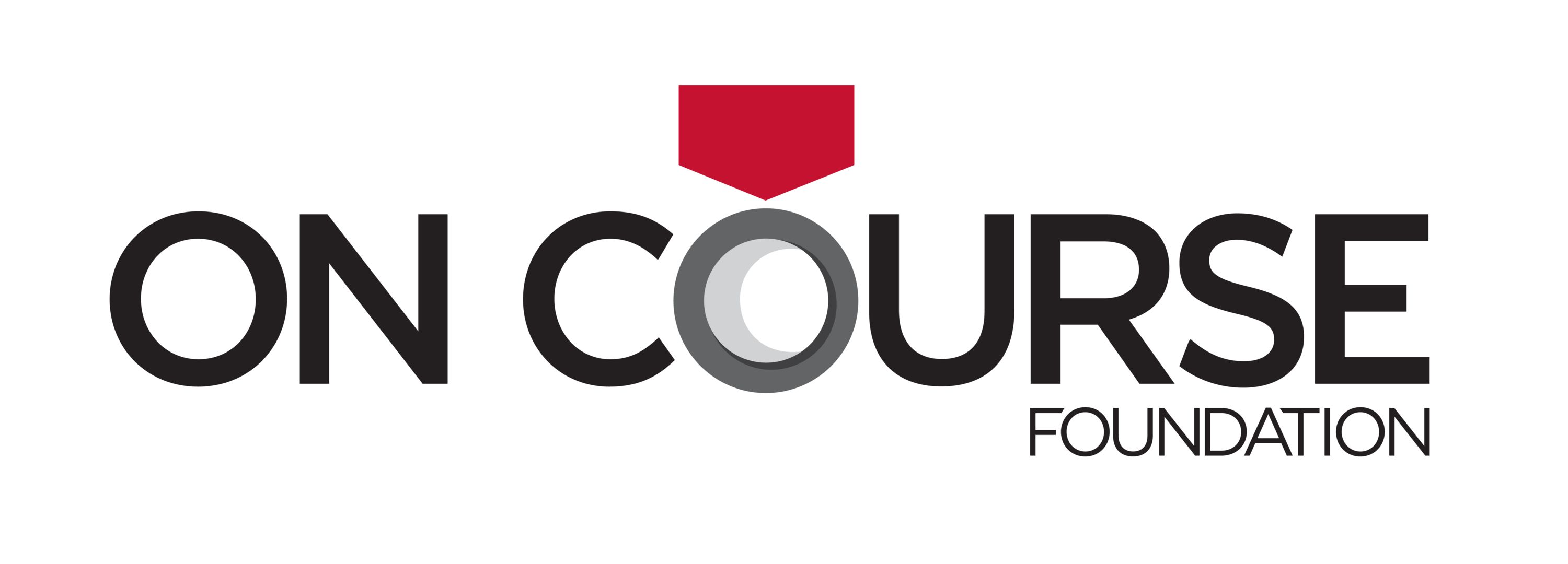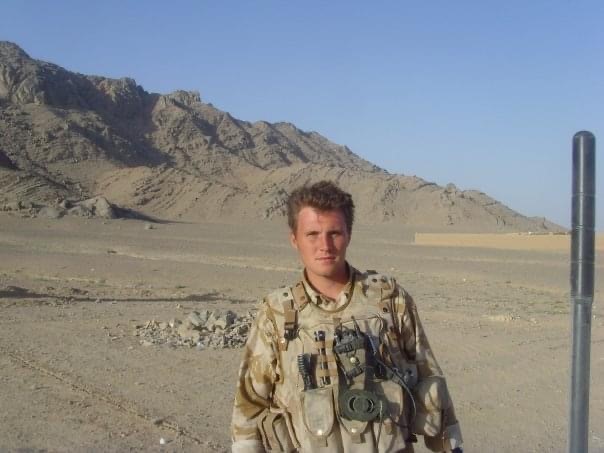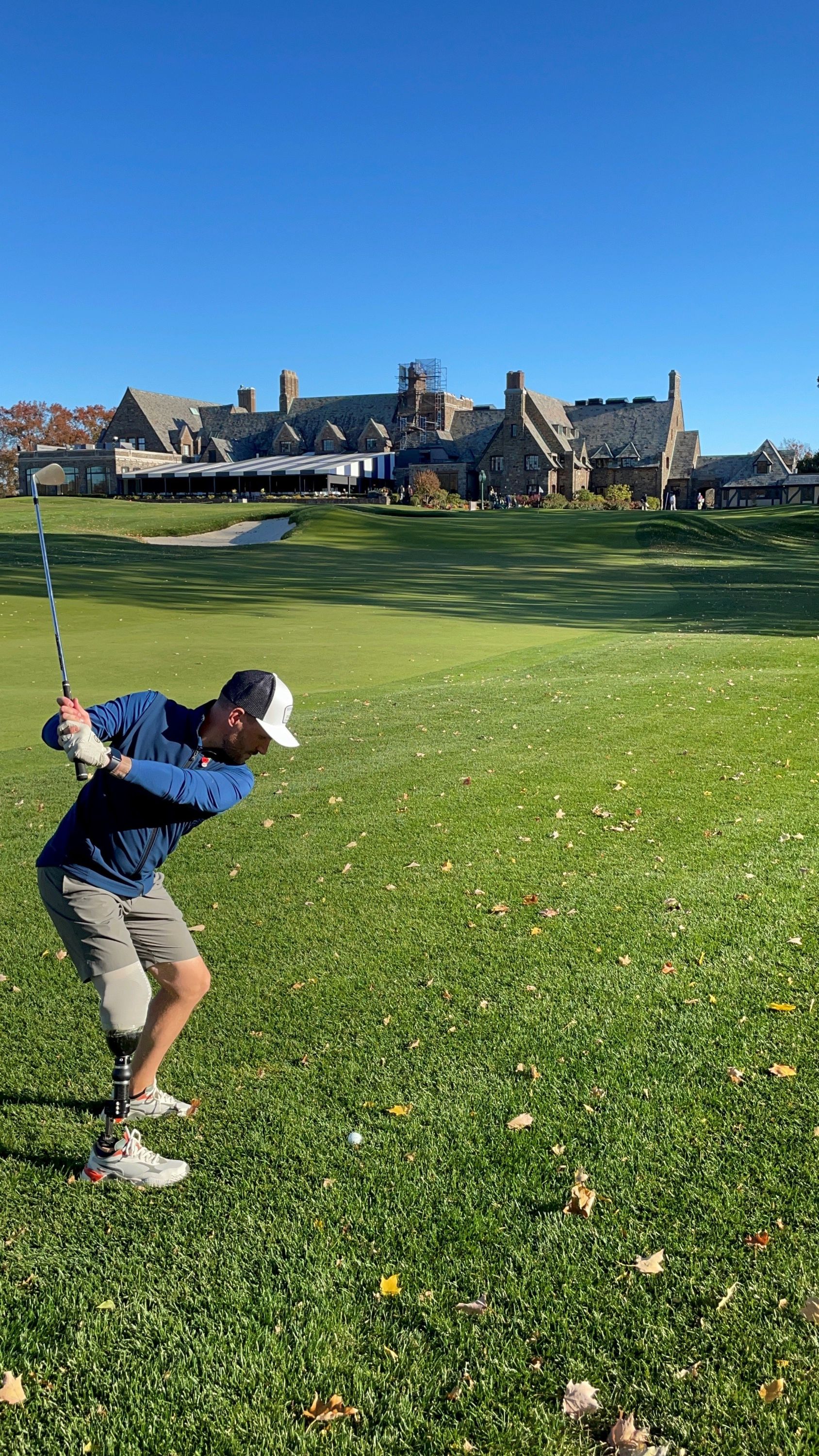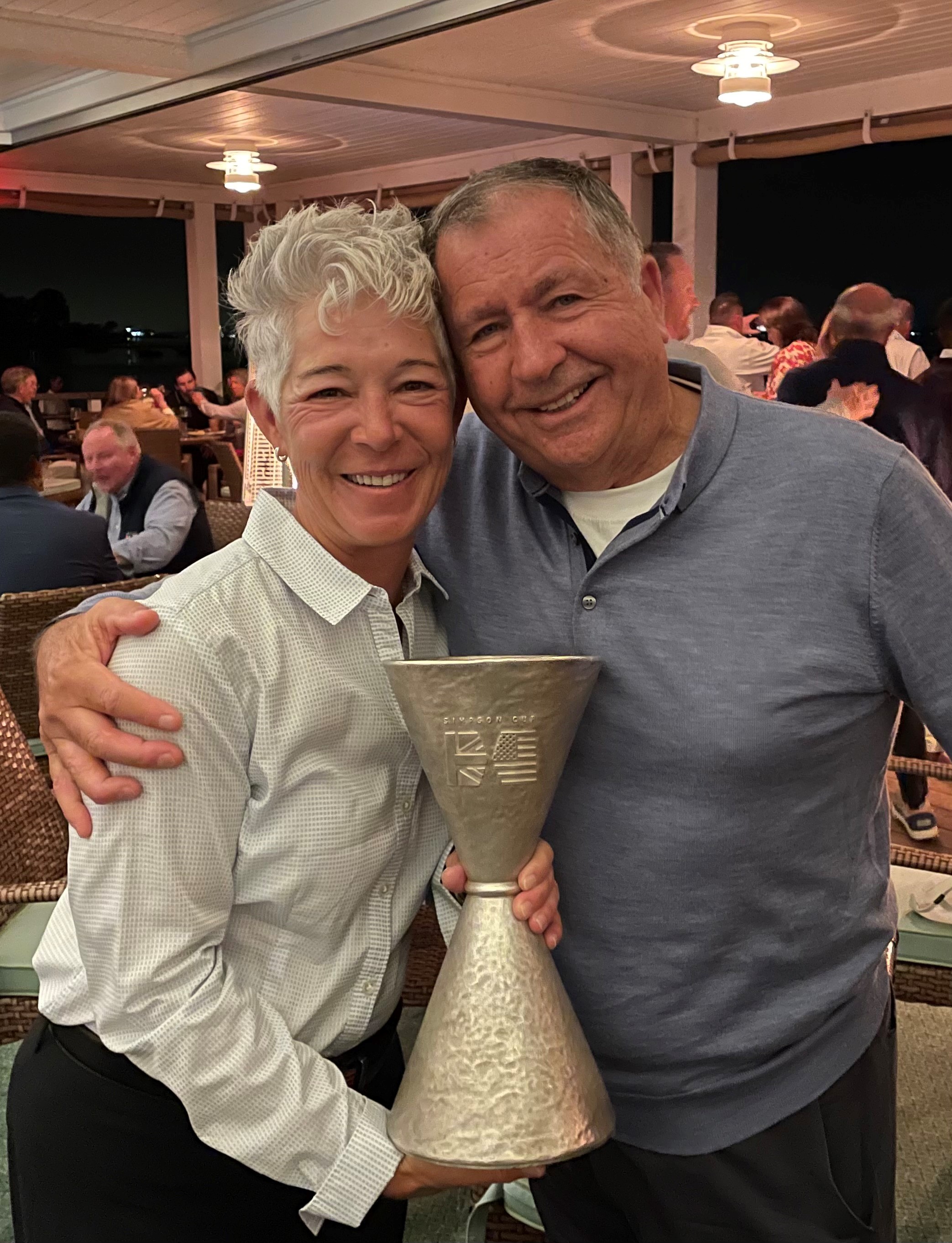Programs In Focus

Why Everyone Should Support On Course Foundation
By Rich Katz, Founder and CEO, Katz Strategy
Since its founding in the U.S. in 2014, On Course Foundation has largely remained outside the public eye. This was intentional, says John Simpson, the organization’s Founder and CEO, opting to initially solidify a high-performing infrastructure.
“Out of the gate, it was important to cultivate strong relationships with military recovery centers and create a curriculum to teach wounded, injured and sick veterans how to play golf,” he says. “Our ‘members’ would also learn business skills for careers in golf, so we partnered with scores of employers in the industry to place them into jobs. In establishing golf’s rightful place as a 360-degrees rehab and recovery mechanism, funders would follow suit.”
The cogent strategy has paid off, bigtime. On Course Foundation has impacted 2,000 members in the U.S. and Great Britain. Moreover, it counts Apollo Golf Management, Charles Schwab, Barclay’s, CSX, Callaway and hosts of other corporations as major sponsors. They’re steadfast in support of Service members who sacrifice their lives to preserve national interests and freedoms. Funds are earmarked to teach golf and the golf business to On Course Foundation members in 15 markets coast to coast.
There are countless stories about how On Course Foundation and its injection of golf as a reclamation tool has altered and saved lives of military men and women who struggle with assimilation back into society. The hidden, psychological wounds and physical wounds are aplenty. Some contemplated suicide and experienced homelessness while others are challenged with mobility issues, including loss of multiple limbs.
Bombs Away
A story for the ages is that of Craig Richardson. The 35-year-old, now a New Jersey resident, was a key Air Force member.
 In his teens, uncertain of a career path, Richardson was intrigued by the military despite no family having served before him. Air security would become his specialty -- guarding planes, airfields, supplies and other above-ground assets.
In his teens, uncertain of a career path, Richardson was intrigued by the military despite no family having served before him. Air security would become his specialty -- guarding planes, airfields, supplies and other above-ground assets.
Intense training led Richardson to the titanic Iraq War in 2007. The young lad was thrown into combat. Minefields were at nearly every footstep and bodies, dead and alive, were strewn all around him.
Twelve months later and making matters even more dangerous, Richardson was deployed to war-torn Afghanistan. That’s when the nightmare occurred:
He was routinely walking aside a convoy’s lead vehicle one night when a landmine blasted him 25 feet in the air. The utter shock and thump of the fall caused several breaks on Richardson’s right knee, left knee injuries and a shattered humerus on a shoulder. Canadian doctors at the U.S. base in Kandahar patched him up and flew him home for amputation of his right leg below the knee. A prosthetic would be in his life forever.
Mentally Awry
Severity is an understatement. Three years rehabbing at Headley Court in U.K. (the equivalent to Walter Reed National Military Medical Center in the U.S.) defined life. The pain from injuries was persistent as was PTSD, often described as anger, anxiety, depression and an overall pity party. Frontline assignments and combat were relegated to the past. Desk duty and flashbacks of the explosion ruled Richardson’s days.
“Life was hanging by a thread,” he says. “I was kind of lost, but still in better shape than those who lost multiple limbs and those who were fallen.”
Then came serendipity. In 2009, Richardson met his future wife, Jess, through her dad who hosted a party for injured service members in New York. That helped boost his attitude to one of positivity and prompted the earning of an applied sports and health exercise college degree. The two married and made Jess’ childhood home of New Jersey their home. They are proud parents of four-year-old Evelyn with another child on the way.
Serendipity No. 2 followed. With a self-improvement attitude in high gear, Richardson saw a social media post of a wounded veteran playing golf at an On Course Foundation program. Intrigue led him to learn more. He attended a three-day event conducted by the organization. Richardson was smitten by the sport and industry he barely knew, one in which he hadn’t previously swung a club or watched much competition on TV.
On Course Foundation
It’s hard enough for people with two legs to reach single-digit handicaps, let alone a guy with a man-made leg. But that’s the goal On Course Foundation gave Richardson. He took lesson beyond lesson and learned to regularly hit the ball with extreme distance and accuracy. Now he’s nearing a nine handicap.
 Taking golf to the next level, Richardson sought, grabbed and grasped a wealth of information about the golf business. He was keen to start a career in America’s $84 billion annual golf industry. On Course Foundation placed him as a clubfitter with Callaway and tournament scorer with VPAR. And he’ll soon join the staff, full-time, at the famous Baltusrol Golf Club in New Jersey ensuring members consistently enjoy their golf and associated social activities.
Taking golf to the next level, Richardson sought, grabbed and grasped a wealth of information about the golf business. He was keen to start a career in America’s $84 billion annual golf industry. On Course Foundation placed him as a clubfitter with Callaway and tournament scorer with VPAR. And he’ll soon join the staff, full-time, at the famous Baltusrol Golf Club in New Jersey ensuring members consistently enjoy their golf and associated social activities.
“On Course Foundation is lifesaving in helping me transition to a new life,” says Richardson. “It gave me a purpose and a great career – just the therapy I need on an on-going basis.
“My brothers and sisters in arms who love golf, thanks to On Course Foundation, are a big part of my support system. When I have tough moments, recalls of the explosion and even occasional self-doubt, I turn to them, Jess and my golf clubs.
 Richardson cites fellow On Course Foundation member Nick Kimmel, a triple-amputee who overcame ultimate barriers to shoot low scores. The two have spent time together at the Simpson Cup, On Course Foundation’s pinnacle event pitting 13 U.S. and U.K. team members in Ryder Cup-style matches. The 2022 Simpson Cup at Baltusrol Golf Club ended in a British victory to even the 10-year rivalry at five apiece.
Richardson cites fellow On Course Foundation member Nick Kimmel, a triple-amputee who overcame ultimate barriers to shoot low scores. The two have spent time together at the Simpson Cup, On Course Foundation’s pinnacle event pitting 13 U.S. and U.K. team members in Ryder Cup-style matches. The 2022 Simpson Cup at Baltusrol Golf Club ended in a British victory to even the 10-year rivalry at five apiece.
“Nick is inspiring as are the guys with lifelong psychological wounds,” says Richardson. “If Nick can do it, as well as those with depression and other anxieties, I can, too. That’s mutual motivation. And we have John Simpson and the dedicated On Course Foundation team to thank.”
****************
About the Author
.jpg)
Rich Katz, Founder & CEO, Katz Strategy
****************
Use of materials from Golf Inclusion Monthly: Please note, the Alliance encourages you to repurpose and share articles we have written or that have been provided to us for publishing in Golf Inclusion Monthly. We request that you please reference Golf Inclusion Monthly Published by the National Alliance for Accessible Golf and share the link for the article you have sourced. If you have any questions, please reach out to info@accessgolf.org. Thank you.
